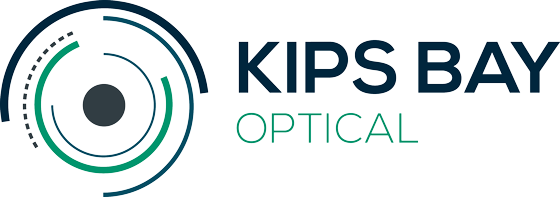
In today's digital age, screen time has become integral to our daily lives. From work to entertainment, we constantly expose our eyes to screens, leading to various eye health concerns. Below, our New York eye care team at Kips Bay Optical will explore the impact of screen time on your eyes.
We will discuss the role of blue light exposure and highlight the importance of regular eye exams. We'll also discuss steps to prevent blue light overexposure and explain how our eye care team can support your eye health.
Understanding the Impact of Screen Time on Eyes
Prolonged screen time can lead to various eye-related issues, often known as digital eye strain or computer vision syndrome. Symptoms include dry eyes, headaches, blurred vision, and neck and shoulder pain. These problems arise because staring at screens for extended periods reduces blinking. This leads to dry eyes and causes the eye muscles to work harder to focus on the screen, resulting in fatigue.
The Role of Blue Light Exposure on Eye Health
One of the major concerns with screen time is blue light exposure. Blue light is a high-energy visible (HEV) light emitted by digital screens, such as computers, tablets, and smartphones. Blue light is not inherently harmful and is present in natural sunlight. However, excessive exposure, especially at night, can disrupt sleep patterns and contribute to digital eye strain.
Blue light can penetrate deep into the eye, potentially causing damage to the retina over time. This can increase your long-term risk for age-related macular degeneration (AMD). Additionally, blue light exposure suppresses melatonin production, meaning you may have difficulty falling asleep at night, negatively affecting overall health.
Importance of Regular Eye Exams
Regular eye exams are crucial for maintaining your best eye health, especially for those who spend significant time in front of screens. During an eye exam, your eye care professional can detect early signs of digital eye strain and other vision problems. They can assess your visual acuity, check for refractive errors, and evaluate the overall health of your eyes.
Moreover, eye exams can help identify other underlying conditions that screen time may exacerbate. These conditions include dry eye syndrome and binocular vision dysfunction. Early detection and intervention are key to preventing long-term damage and ensuring your eyes remain healthy.
Steps to Prevent Blue Light Overexposure
To reduce the effects of blue light and screen time on your eyes, consider the following steps:
- Use the 20-20-20 Rule
Every 20 minutes of screen time, take a 20-second break and look at something 20 feet away. This simple practice helps reduce eye strain and relaxes your eye muscles.
- Adjust Screen Settings
Lower the brightness of your screens and use blue light filters or "night mode" settings, which reduce blue light emission. Many devices offer built-in options for this purpose.
- Wear Blue Light-Blocking Glasses
Blue light-blocking glasses can filter out a significant portion of blue light, reducing its impact on your eyes. These glasses are available in various styles, and you can wear them while using digital devices.
- Make Sure Your Screens Are At the Right Distance and Height
Ensure your screen is at eye level and about an arm's length away from your face. This positioning helps reduce strain on your neck and eyes. Additionally, keep your screen clean to avoid glare and reflections.
How Our Eye Care Team Can Help
Our eye care team aims to help you protect your eye health and vision in the digital age. We offer comprehensive eye exams to assess your vision and identify any issues related to screen time and blue light exposure. Our experts can provide personalized recommendations, including prescription glasses with blue light protection, ergonomic advice, and strategies to manage digital eye strain.
Our team also stays updated on the latest advancements in eye care technology and treatments. This ensures you receive the best possible care every time you come in. Whether you're experiencing symptoms of digital eye strain or want to take proactive steps to protect your eyes, we're here to support you every step of the way.
